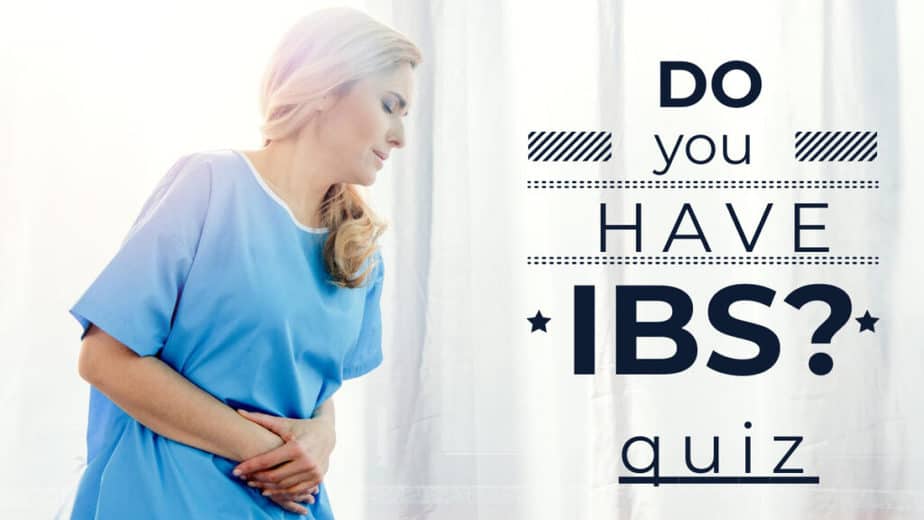Are you tired of your gut constantly calling the shots, leaving you feeling bloated, uncomfortable, and frustrated? Welcome to the enigmatic world of IBS-C, or irritable bowel syndrome with constipation.
Within this fascinating realm of gut health, we’ll explore a not-so-friendly duo: chronic constipation and digestive disorder. Are you ready to understand IBS-C’s symptoms, causes, and ways to manage this often-misunderstood condition?
In my experience as a gastroenterologist, I’ve seen how IBS-C can turn the simplest tasks into daunting challenges for patients. But fear not!
This article will equip you with the knowledge to navigate IBS-C’s intricate web. You’ll learn about the multifaceted causes, diagnostic criteria, and even uncover whether your family history has a say in IBS-C. From practical tips for social events and travel to the importance of open communication, we’ll also explore the full spectrum of IBS-C management strategies.
Remember, you’re not alone on this journey, and with the right approach, a better quality of life is within reach. So, let’s embark on this enlightening odyssey through the world of IBS-C. The first stop: understanding the symptoms and causes.
- Related: Guide to IBS

Key Takeaways
- IBS-C is a subtype of irritable bowel syndrome characterized by chronic constipation and discomfort.
- Differentiating features of IBS-C include infrequent bowel movements, hard stools, and abdominal bloating.
- IBS-C symptoms can range from mild to significantly disruptive, affecting daily life activities.
- Accurate diagnosis involves medical history, physical examination, and diagnostic tests.
- Personalized management strategies for IBS-C include dietary modifications, medications, stress management, and regular exercise.
- Lifestyle modifications, such as stress reduction and quality sleep, can complement treatment plans.
- Natural remedies like probiotics and complementary therapies like acupuncture may provide additional support, but should be used with caution and under professional guidance.
What is IBS-C?
At the crux of understanding IBS-C lies the conundrum of chronic constipation coupled with the symptomatic intricacies of IBS. It’s like a double feature in the world of digestive disorders.
IBS-C, considered a subtype of IBS, is characterized by infrequent bowel movements and a considerable amount of discomfort. In simpler terms, it’s chronic constipation with an IBS twist.
If you’re dealing with IBS-C, you’re not alone; it affects an estimated 4.3% to 5.2% of adults in the United States. It’s more prevalent in women and tends to surface in young adulthood.
This doesn’t mean that you can’t experience bouts of diarrhea with IBS-C; it’s just that constipation tends to be more of the dominant symptom.
IBS-C isn’t a disease, but rather a chronic functional disorder of the digestive system. It’s considered functional constipation because it doesn’t cause structural damage like ulcers or inflammation.
And while the exact cause of IBS-C isn’t entirely understood, it’s likely a combination of factors, including gut-brain axis dysfunction, altered gut motility, and sensitivity.
How is IBS-C Different from Other Forms of IBS?
The primary distinction between IBS-C and other IBS subtypes lies in your bowel habits. While IBS-D (with diarrhea) might leave you running to the bathroom, IBS-C often feels like it’s putting a ‘pause’ button on your digestion.
While all forms of IBS share some common symptoms, such as abdominal pain or discomfort, gas, and bloating, IBS-C is specifically distinguished by the presence of constipation. It’s essential to differentiate IBS-C from other types of IBS, such as IBS-D (diarrhea-predominant) or IBS-M (mixed bowel habits), to tailor treatment strategies effectively.
Here’s a quick comparison of IBS-C, other forms of IBS, and functional constipation:
| IBS-C | Other Forms of IBS | Functional Constipation | |
|---|---|---|---|
| Key Symptom | Constipation | Diarrhea or Mixed Symptoms | Infrequent, Hard Bowel Movements |
| Presence of Abdominal Pain/Discomfort | Yes | Yes | No |
| Stool Consistency | Dry, Hard | Varies | Varies |
| Diagnosis | ROME IV Criteria | ROME IV Criteria | ROME IV Criteria |
| Treatment Approach | Lifestyle Changes, Medications | Lifestyle Changes, Medications | Lifestyle Changes, Laxatives |
IBS-C Symptoms
If you’re living with IBS-C, you know that your gut loves to put a damper on your day. Here are some common symptoms you might be all too familiar with:
- Infrequent bowel movements: Fewer than three bowel movements a week is a classic IBS-C hallmark.
- Hard, lumpy, or difficult-to-pass stools: Chronic constipation is a key player in this subtype.
- Abdominal discomfort and bloating: These symptoms often occur alongside constipation, but may not necessarily be exclusive to IBS-C.
The symptoms of IBS-C can range from mildly bothersome to significantly disruptive. Imagine constantly battling with infrequent bowel movements, coupled with the discomfort of abdominal pain and bloating.
It’s no wonder that IBS-C can have a profound impact on a person’s quality of life, affecting everything from work productivity to social activities.
- Work and Social Life: Imagine sitting in a meeting, clenching your gut, waiting for the pain to pass. Or canceling plans with friends because you’re just not feeling up to it. IBS-C can be a party pooper, literally and figuratively.
- Mental and Emotional Health: The constant worry about when the next flare-up will strike can be mentally exhausting. Anxiety and stress often go hand in hand with IBS-C, creating a vicious cycle that’s hard to break.
- Food and Diet: You might find yourself avoiding certain foods, meals, or even restaurants altogether. The fear of triggering symptoms can lead to a restricted diet that affects your nutrition and enjoyment of food.
If you’re experiencing these symptoms, it’s essential to reach out to a healthcare professional for a proper diagnosis. Understanding IBS-C is the first step in managing this challenging, yet manageable, digestive disorder.
Learn more about general IBS symptoms.
The Causes and Diagnosis of IBS-C
IBS-C, like many gut conditions, can sometimes feel like a riddle wrapped in a mystery. But fear not — there are clues to uncover and patterns to decipher.
Unraveling IBS-C Causes
IBS-C doesn’t have just one culprit. It’s more like a symphony of factors that can contribute to its development. Here’s a breakdown of some top suspects:
- Gut Motility and Sensitivity: One of the primary suspects is how the muscles in the digestive tract contract and move food along (gut motility). In IBS-C, these contractions may become sluggish, leading to constipation. Additionally, the gut might also become more sensitive, amplifying sensations of pain and discomfort.
- Altered Gut-Brain Connection: The gut and brain have an intricate dialogue, often referred to as the gut-brain axis. In IBS-C, this communication can go awry. Stress, anxiety, and other emotional factors can trigger changes in gut motility and sensitivity, worsening constipation.
- Food Sensitivities: Certain foods, like dairy or gluten, can trigger IBS-C symptoms in some individuals. Identifying and avoiding these triggers can be a game-changer.
- Microbial Imbalances: Your gut is home to trillions of bacteria, and when the balance is disrupted, it can affect gut function and trigger IBS-C symptoms.
- Family Matters: If you have a close relative with IBS-C, you might be at a higher risk of developing it too. While the exact genetic link is yet to be unraveled, family history does seem to play a role. It’s not a guarantee, though, as environmental and lifestyle factors also have their say.
Research is still ongoing to better understand the causes of IBS-C. The current understanding points to a complex interplay of genetics, gut function, and environmental factors.
By continuing to investigate these complex interactions, we can unlock new approaches to managing and potentially preventing this often frustrating condition.
Learn more about general IBS causes.

Diagnosing IBS-C: Ruling Out the Rest
If you’re experiencing regular abdominal pain, coupled with infrequent bowel movements and the feeling of incomplete evacuation, it’s time to consult a healthcare professional. Here’s what the diagnostic process may involve:
- Medical History: Your doctor will want to know all about your symptoms, their frequency, duration, and any potential triggers.
- Physical Examination: A thorough examination of the abdomen can help rule out other underlying causes of your discomfort.
- Diagnostic Tests: While there’s no definitive test for IBS-C, your doctor may order tests like a blood work, stool analysis, or imaging studies to rule out other conditions that may mimic IBS-C symptoms.
- Rome IV Criteria: To meet the official diagnosis of IBS-C, you’ll need to show symptoms according to the Rome IV criteria, which include abdominal pain for at least one day a week in the last three months, along with changes in bowel habits.
Let’s take a look at some of these for a little more depth.
The Role of Physical Exams
During your appointment, expect your healthcare provider to perform a physical examination. This typically involves palpating the abdomen to feel for any abnormalities, as well as checking for signs of tenderness or bloating.
While a physical exam alone cannot confirm an IBS-C diagnosis, it can help guide your healthcare provider in determining the next steps of your evaluation.
Tests That May Be Conducted
While there isn’t a single definitive test for IBS-C, certain diagnostic investigations can help rule out other potential causes or identify red flags that require further evaluation. These may include:
- Blood tests: To check for anemia, thyroid dysfunction, or signs of inflammation.
- Stool studies: To rule out infections or detect markers of inflammation.
- Imaging tests: Such as X-rays or CT scans, which can provide a structural overview of the intestines.
The Rome IV Criteria
The Rome Criteria, a widely accepted diagnostic guideline, serves as the backbone for identifying IBS. “These criteria,” Dr. Lisa Richards, a renowned gastroenterologist, explains, “emphasize the presence of recurrent abdominal pain or discomfort that is associated with altered bowel habits, such as constipation.”
By considering the frequency, duration, and timing of symptoms, healthcare providers can better differentiate IBS-C from other conditions.
When to Seek Professional Advice for Diagnosis
While it’s tempting to rely on Dr. Google or anecdotal advice, nothing beats a professional evaluation.
If you’ve been experiencing recurrent and bothersome symptoms such as abdominal pain or discomfort, bloating, and a change in bowel habits, it’s time to consult a healthcare provider. This is especially important if you notice any “alarm symptoms” like unintentional weight loss, rectal bleeding, or a family history of gastrointestinal diseases, as these may warrant additional evaluation.
Diagnosing IBS-C isn’t a solo mission. It requires open communication with your healthcare provider, who will consider both your symptoms and the exclusion of other conditions.
Together, you’ll work towards unlocking the best management strategies to put your IBS-C symptoms at ease. So, don’t suffer in silence; seek the expertise you need to bring your gut back to harmony.
Learn more about general IBS diagnosis.
Managing IBS-C: Treatment and Strategies
When it comes to tackling the symptoms of IBS-C, the name of the game is finding what works best for you. Remember, what may be a game-changer for one person might fall flat for another. It’s all about personalized care.
So, let’s dive into some key treatment options and symptom management strategies that can help you put the brakes on those IBS-C discomforts.
1. Lifestyle Modifications
In the complex realm of IBS-C management, making a few key lifestyle tweaks can complement your treatment plan and potentially bring relief. Let’s dive into two areas that often don’t get the attention they deserve: stress and sleep.
Stress Management
There’s an intricate dance between stress and IBS-C symptoms, and learning to navigate it can be liberating. Stress management techniques such as mindfulness, deep breathing exercises, and even therapy can help reduce the frequency and severity of flare-ups.
- Mind-Body Techniques: Practices such as deep breathing, meditation, and yoga can help reduce stress and, in turn, alleviate IBS-C symptoms.
- Cognitive Behavioral Therapy (CBT): CBT can help you identify and manage stress triggers, leading to better symptom control.
Don’t let stress tighten its grip; take the reins and let your gut breathe a sigh of relief.
Sweating Out the Tension
Exercise isn’t just for the body; it also does wonders for your gut. Regular physical activity, even something as simple as a daily walk, can promote smoother bowel movements
Engaging in moderate-intensity exercise, such as brisk walking or swimming, can help promote regular bowel movements and alleviate constipation.
Exercise isn’t a cure-all, but it can certainly be a valuable tool in your IBS-C management kit.
The Beauty of Quality Sleep
It’s not just a cliché; sleep really does matter. Poor sleep can exacerbate IBS-C symptoms, leaving you feeling even more sluggish and uncomfortable.
Aim for a consistent sleep schedule and create a soothing pre-bedtime routine to help improve both the quality and quantity of your sleep.
Discovering the right lifestyle modifications for IBS-C management may take some time and experimentation. Tailor these strategies to fit your unique needs and consult with your healthcare provider for personalized guidance.
By addressing stress, prioritizing exercise, and honoring the power of a good night’s sleep, you can unlock a more harmonious relationship between your gut and your overall well-being.
2. IBS-C Diet: What to Eat and What to Avoid
Identifying trigger foods and adopting a personalized diet plan can be instrumental in managing IBS-C symptoms. While the specific foods that trigger symptoms can vary from person to person, there are some general guidelines that can help you navigate your way to a happier gut.
The Benefits of Fiber, Fluid Intake, and Timing of Meals
- Fiber: A high-fiber diet can be a game-changer for many with IBS-C. It adds bulk to the stool and helps regulate bowel movements. But not all fibers are created equal. Some people find soluble fibers like oats and psyllium husk more tolerable, while others do better with insoluble fibers like whole grains. Experimenting with different fiber sources can help you find your sweet spot.
- Fluid Intake: Staying well-hydrated is essential, as it aids in the movement of stool through the digestive tract. Aim for around 8 cups of fluids daily, mainly from water, herbal teas, and hydrating foods like fruits and vegetables.
- Meal Timing: Establishing regular meal times and taking your time to eat can also make a difference. Rushed or irregular meals may disrupt the digestive process, contributing to symptoms. So slow down, savor your food, and let your body process it at its own pace.
Learn more about general IBS diet and foods.
Is a Low-FODMAP Diet Effective for IBS-C?
While a low-FODMAP diet has shown promising results in managing IBS-C symptoms, it’s not a one-size-fits-all solution. In fact, the diet was initially developed for IBS-D (diarrhea-predominant) but has been explored for other subtypes as well.
The low-FODMAP diet works by limiting certain types of carbohydrates that can trigger symptoms.
If you suspect certain high-FODMAP foods are triggering your symptoms, it’s worth discussing this option with your healthcare provider or a registered dietitian who specializes in gut health. They can guide you through the process of elimination and reintroduction to identify your specific triggers.
3. IBS-C Medications: Breaking Down Your Options
When it comes to managing IBS-C, lifestyle modifications are essential. However, some patients may require the additional help of medications specifically designed to ease constipation and alleviate discomfort. They come in two main forms:
- Over-the-Counter (OTC) Options: Laxatives, such as polyethylene glycol or psyllium, can help soften stools and improve bowel movements.
- Prescription Medications: Your doctor might prescribe medications like lubiprostone or linaclotide to help regulate bowel function.
Below, you’ll find a table of common IBS-C medications, how they work, and what you should know about their potential side effects:
| Type | How They Work | Common Options | Side Effects |
|---|---|---|---|
| Fiber Supplements | Increase dietary fiber to help regulate bowel movements. | Psyllium husk, methylcellulose | Flatulence and bloating, especially at start of use |
| Osmotic Laxatives | Draw water into the intestines, softening stools. | Polyethylene glycol (PEG), lactulose | May cause abdominal cramping and diarrhea |
| Lubricants | Help stools pass more easily. | Mineral oil | May interfere with absorption of fat-soluble vitamins |
| Stimulant Laxatives | Stimulate the intestines to promote bowel movements. | Senna, bisacodyl | Can lead to dependency, use sparingly |
| Prescription Medications | Target specific pathways in the gut to improve motility. | Lubiprostone, linaclotide | Possible nausea, diarrhea, and abdominal pain |
Medications should always be used in conjunction with lifestyle modifications rather than as a standalone treatment.
It’s important to note that while these medications can be effective, they may not work the same for everyone. Consulting with a healthcare professional is crucial in determining the best approach for your specific symptoms and medical history.
Learn more in our in-depth IBS-C Medications Guide.
4. Natural Remedies and Complementary Therapies
For those with IBS-C seeking alternatives or complementary approaches to symptom management, several avenues are worth exploring. These options, ranging from probiotics to acupuncture, can offer additional support beyond conventional treatments.
1. Probiotics: The Gut’s Good Bacteria
- Probiotic supplements are beneficial bacteria that can help rebalance an imbalanced gut microbiome.
- Studies have shown mixed results, with some individuals reporting reduced IBS-C symptoms.
- Strains like Bifidobacterium and Lactobacillus are commonly used, but the optimal strain, dose, and duration are still being explored.
2. Herbal Remedies: Nature’s Potential Allies
- Certain herbs like peppermint, fennel, and ginger have traditionally been used to ease digestive woes.
- Some clinical trials have demonstrated promising results in alleviating IBS symptoms, including constipation.
- However, herbal remedies can have their own set of risks and interactions with medications, so caution is advised.
3. Acupuncture: Tapping into Traditional Chinese Medicine
- Acupuncture, a key component of Traditional Chinese Medicine, involves inserting thin needles into specific points on the body.
- Research suggests that acupuncture may improve IBS symptoms, including constipation, by modulating the nervous system and reducing inflammation.
- While generally considered safe, it’s essential to seek a licensed and experienced acupuncturist.
It’s crucial to note that while some individuals may find relief through these methods, the efficacy can vary from person to person. IBS-C natural remedies can be a valuable addition to your toolkit, but their integration should always be informed and guided by expert advice.

Living with IBS-C: Tips for a Better Quality of Life
IBS-C can feel like an uninvited guest to the party of life, but with some practical strategies, you can still find joy and participate fully.
1. Be the Master of Your Menu
- Check menus or plan meals before social events to ensure IBS-C-friendly options.
- Choose high-fiber foods, such as fruits, vegetables, and whole grains, to promote regular bowel movements.
2. Embrace the Power of Portion Control
- Avoid overeating to reduce strain on your digestive system and practice mindful eating.
- Opt for small, frequent meals to prevent overwhelming your digestive system.
3. Prioritize Stress Management
- Manage stress, which can exacerbate IBS, by incorporating activities like yoga, meditation, or walks.
- Allow time for relaxation and self-care, especially when traveling.
4. Stay Hydrated
- Avoid exacerbating constipation by staying hydrated; drink plenty of water.
- Limit intake of dehydrating substances like caffeine and alcohol.
5. Open Up to Loved Ones
- Communicate with friends, family, and colleagues about your condition.
- Rely on their understanding and support to ease your comfort during social and travel engagements.
6. Prepare a “Go” Bag
- Pack essentials like moist towelettes, extra underwear, and necessary medications when traveling.
- Be prepared to manage potential IBS-C flare-ups and reduce anxiety by having these items available.
7. Maintain a Symptom Diary
- Record symptoms, triggers, and relief strategies to gain insights into managing your condition.
- Share your diary with healthcare providers to inform and guide your IBS-C management plan.
Remember, while IBS-C can pose challenges, it doesn’t have to steal your joy or limit your experiences. By adopting these practical strategies, you can reclaim control and live a fulfilling life, regardless of the IBS-C’s uninvited presence.
Learn more about the factors that increase IBS risk.
Final Thoughts on IBS-C
Understanding IBS-C’s unique blend of chronic constipation and IBS symptoms is key to managing this complex digestive disorder. From accurate diagnosis to personalized treatment plans, the journey to relief is multifaceted and collaborative.
Remember, everyone’s journey with IBS-C is unique. It’s not just about managing the physical symptoms, it’s also about addressing the emotional and lifestyle aspects that come into play.
Seeking the guidance of a healthcare professional who specializes in gut health can help you navigate this intricate landscape and tailor a management plan that specifically suits you. So, embrace the notion of a holistic approach for your IBS-C management, and you’ll be better equipped to sail through the ups and downs.

- https://www.ncbi.nlm.nih.gov/pmc/articles/PMC10096616/
- https://www.ncbi.nlm.nih.gov/pmc/articles/PMC4616212/
- https://www.ncbi.nlm.nih.gov/pmc/articles/PMC4872845/
- https://www.ncbi.nlm.nih.gov/pmc/articles/PMC8071080/
- https://pubmed.ncbi.nlm.nih.gov/37049488/
- https://recsports.ufl.edu/be-friendly-to-your-gut-irritable-bowel-syndrome/
- https://www.health.harvard.edu/blog/integrative-approaches-to-reduce-ibs-symptoms-2019021115918
- https://www.med.unc.edu/ibs/research/ongoing-studies/dornibsc2/
- https://medschool.ucla.edu/news-article/symptoms-of-ibs-in-women-vs-men
